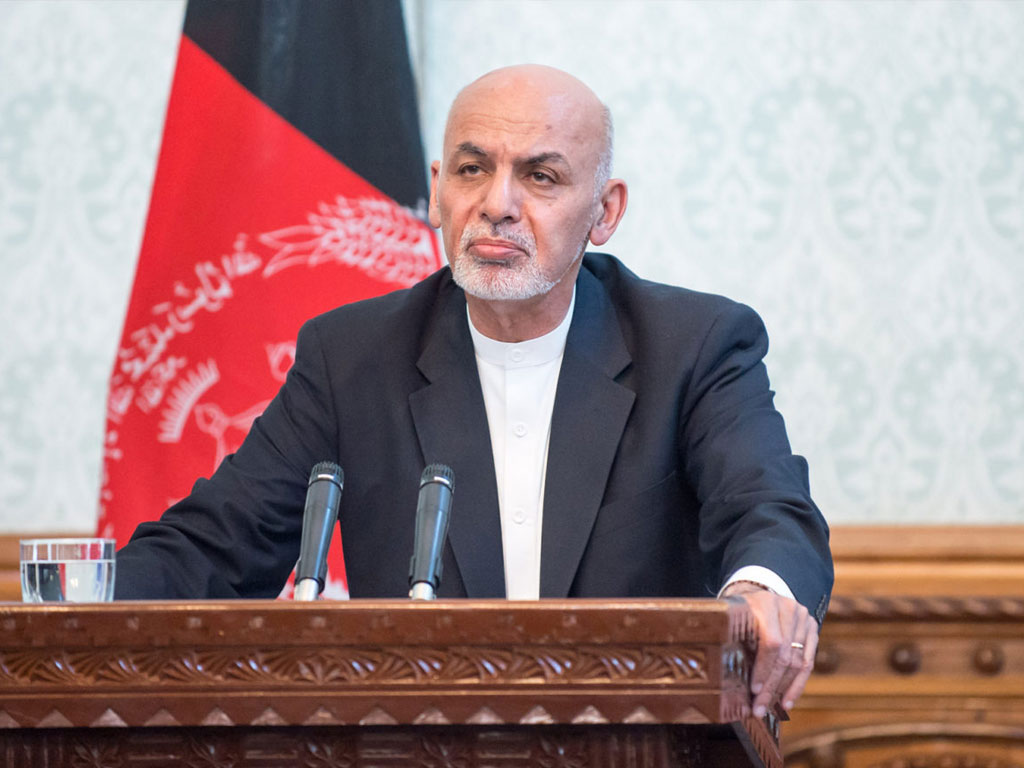Afghan peace deal in doldrums

The US president, true to form exploded a bombshell by revealing that the Afghan Taliban and the Afghan government representatives led by president Ashraf Ghani were to be flown to his official retreat 'Camp David' for sealing the peace deal but because of the Taliban attack in Kabul in which a US soldier was killed he had decided to call off this meeting. Even before the ink was dry on the draft peace agreement Special US Envoy Zalmay Khalilzad had hammered out in nine rounds of talks with the Taliban in Doha, Qatar, the portents were troubling. Khalilzad had travelled to Kabul in recent days for discussions with Afghan President Ashraf Ghani on the deal, during which he is reported to have shown Ghani the draft agreement but refused to leave it with him. There were not just reports of disagreements between Khalilzad and Ghani, but according to some sources, a 'shouting match' between the two. Perhaps as a result, Ghani's visit to the US for discussions with President Donald Trump had been postponed by Washington. Khalilzad in the meantime had rushed back to Doha, reportedly to discuss the recent uptick in attacks by the Taliban, particularly in the western provinces of Afghanistan but also in the form of back-to-back bombings in Kabul that triggered the cancellation of the top secret huddle in the Camp David. Although the Taliban attacks in Farah, Kunduz and Pul-e-Khumri have been or are in the process of being beaten back with claims of heavy losses to the Taliban, the role of US forces, especially from the air, still presents itself as crucial for the fight against the insurgents. That irreducible fact has set alarm bells ringing, with objections to the deal from the Afghan government, several former US ambassadors to Afghanistan, and former defence secretary Jim Mattis' book arguing against a hasty withdrawal of US troops, citing the example of Iraq amongst others. There are also questions being raised about the intent of the Taliban in the light of their stepped-up attacks even as the Doha agreement is supposed to be close to closure. The critics are not confined to former US officials or the Afghan government. President Ashraf Ghani's Tajik allies in the form of slain Lion of Panjsher Ahmad Shah Massoud's son have expressed grave apprehensions regarding the outcome of the deal. While Zalmay Khalilzad was claiming the other day that it was all but done, reports spoke of President Trump's reluctance to put his imprimatur on the draft. As though that message needed to be underlined, US Secretary of State Mike Pompeo was said to have refused to sign it.
The problem at the heart of the draft agreement is that Taliban guarantees against Afghan soil ever again being used for attacks on the US or its allies are being questioned given their clear 'fighting while talking strategy', which some reports describe as a way to strengthen their negotiating position but which has given rise to concerns about the intent of the Taliban to wrest power through the barrel of a gun, tactical negotiations with the US and concessions to a less stringent form of Taliban rule notwithstanding. From the Taliban's perspective, the game has already been given away by Trump's scarcely concealed and oft-repeated desire to withdraw US troops before his bid for re-election in 2020. With that in mind, the Taliban appear to believe Washington has tacitly already admitted defeat and is merely gravitating towards a 'cut-and-run' policy. With Washington's hand so completely exposed, the Taliban could be forgiven for thinking that all they have to do is wait out the US's cut-off date and in the meantime increase pressure on the battlefield. Given these recent developments, persuading the Taliban from the weak hand Washington appears to hold to enter into talks with the Afghan government for a cessation of war and a subsequent (hoped for) power sharing arrangement increasingly looks like pie-in-the-sky. The Taliban continue to dismiss the Afghan government out of hand as a US 'puppet' and have only conceded meeting Afghan officials in their personal capacity (which may still happen in the conference planned in Norway). But for anyone without the blinkers of narrow self-interest, it seems plain as daylight that the Taliban intend to go for broke, especially now that the fissures emerging in the US administration itself regarding the deal are out in the open.




























Comments
Comments are closed.